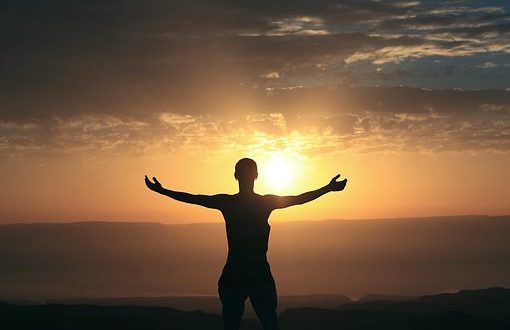Do You Want Freedom?
Do you want freedom? There is much talk of freedom these days. Feelings of constraint have highlighted a desire for freedom, understandably.
Many people may say I do want freedom. It is imperative that we protect our human rights. Yes, in the dualistic realm of individuality, freedom is vitally important.
But pause for one moment and I invite you to look deeper.
Freedom for who?
Before we can see if freedom is even possible, before freedom can be found or threatened, perhaps we need to look closely at who this ‘you’ that wants freedom actually is? Does this person really exist?
But surely this is obvious! Don’t be ridiculous. It is me! Of course I exist! I am a woman, or I am a man, I have these parents, I have these children, I am a person, I have my rights. I have this education and have had all these experiences. I am a mother, or a postman or a doctor or an actor. We might say. I even have a passport which states my nationality and personal identity! Why on earth would you question who I am?
Well yes – human rights, civil liberties all pertain to the individual person. The person on the passport. Freedoms are of course important within the phenomenal world for who we believe ourselves to be in this dynamic realm. We honour those who have fought for our freedom in history. Absolutely. All within this world of names and forms. The world that most of us agree is the real world. But is that world real? It is real on the level of phenomenality! But is that reality?
‘Nothing real can be threatened; Nothing unreal exists. Herein lies the peace of God’ A Course in Miracles
If we look deeper, as the mystics and the sages have. If we look deeper as Jesus and Buddha and Ramana Maharshi did – we can discover something surprising. Something unexpected and something ‘real’. A deeper true and lasting freedom, beyond and before this apparent phenomenal world.
Jesus said ‘I have overcome this world’. What does this really mean? To overcome, to transcend this conditioned mind. Is that possible for ordinary people?
To transcend the dualistic realm, to discover non dual truth is to rest in the peace and oneness of God. Our true place. To transcend the duality of freedom and bondage for the personal identity is the discovery of the True Self. The True Self that is imperishable, invisible, infinite and ineffable. Our own natural being.
Why fight for the liberty of a form that is evanescent? Why protect the freedom of an apparently existing body/mind (ego) which is actually impermanent and already vanishing? That does not necessarily mean we are inactive or don’t care? No – not at all. Within the dynamic play, action can flow. Action in harmony with the True Self. The impersonal is the womb of compassion. The sacred heart, full of love and grace.
To know this, to know who you truly are is perhaps the most sacred and profound discovery that will truly set you free. Not as a ‘person’ or ego, but as consciousness itself.
Not ‘freedom for the peron’, as Mooji so beautifully says.

